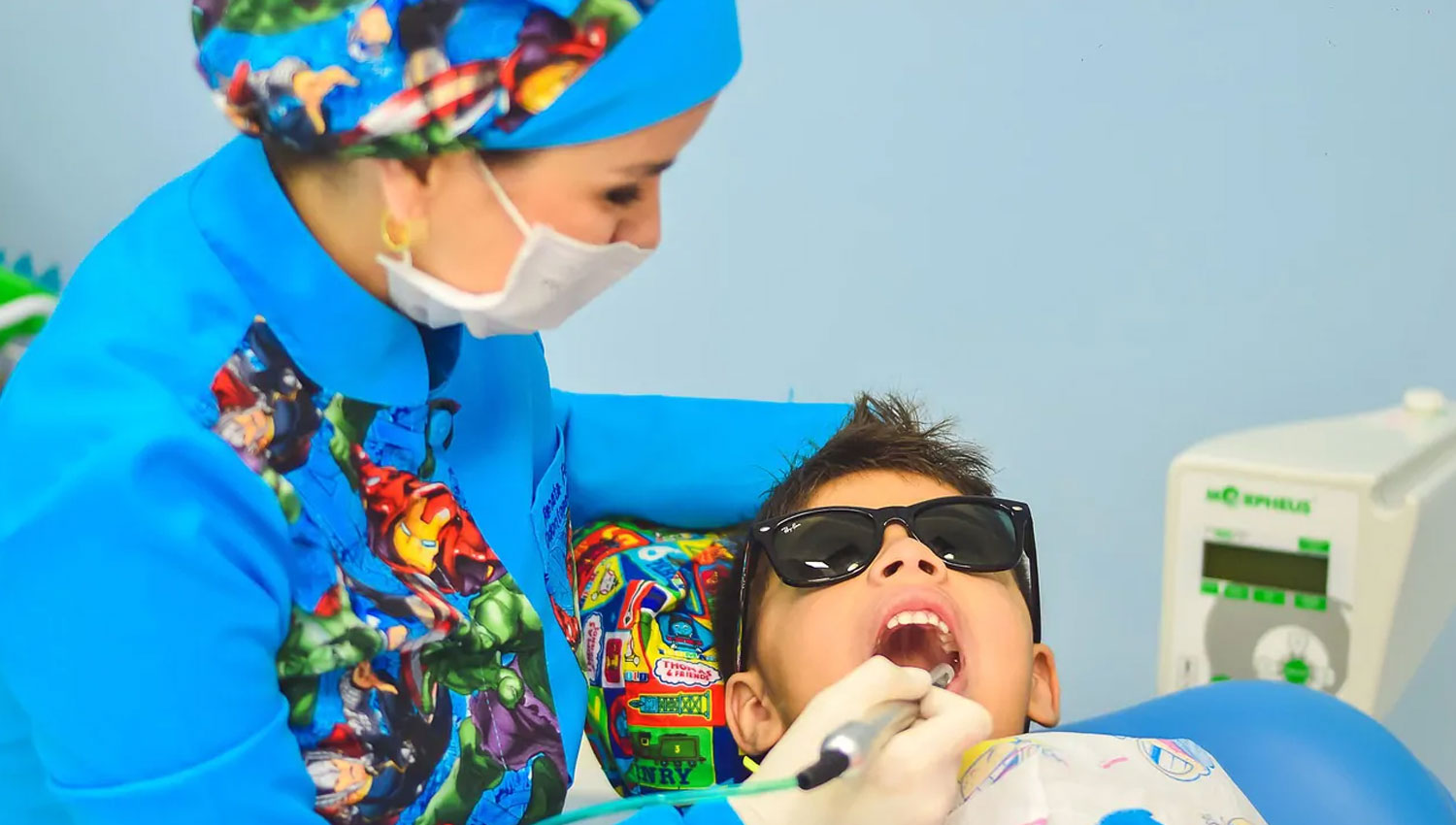Bruxism, or the grinding of teeth, is remarkably common in children and adults. For some children, this tooth grinding is limited to daytime hours. However, nighttime grinding (during sleep) is the most prevalent. Bruxism can lead to a wide range of dental problems, depending on the frequency of the behavior, the intensity of the grinding, and the underlying causes of the grinding.
A wide range of psychological, physiological, and physical factors may lead children to brux. In particular, jaw misalignment (bad bite), stress, and traumatic brain injury are all thought to contribute to bruxism. However, grinding can also occur as a side effect of certain medications.
What Are Some Symptoms of Bruxism?
Parents can usually hear intense grinding – especially when it occurs at nighttime. Subtle daytime jaw clenching and grinding, however, can be difficult to pinpoint. Oftentimes, general symptoms provide clues as to whether the child is bruxing, including:
- Frequent complaints of headache.
- Injured teeth and gums.
- Loud grinding or clicking sounds.
- Rhythmic tightening or clenching of the jaw muscles.
- Unusual complaints about painful jaw muscles – especially in the morning.
- Unusual tooth sensitivity to hot and cold foods.
How Can Bruxism Damage My Child’s Teeth?
Bruxism is characterized by the grinding of the upper jaw against the lower jaw. The child may experience moderate to severe jaw discomfort, headaches, and ear pain. This is especially common in cases where there is vigorous grinding.
In some cases, the child is completely unaware of nighttime bruxing and parents are unable to hear it. Even then, the condition of the teeth provides your pediatric dentist with important clues.
First, chronic grinders usually show an excessive wear pattern on the teeth. If jaw misalignment is the cause, tooth enamel may be worn down in specific areas. Children who brux also are more susceptible to chipped teeth, facial pain, gum injury, and temperature sensitivity. In extreme cases, frequent, harsh grinding can lead to the early onset of temporomandibular joint disorder (TMJ).
What Causes Bruxism?
Bruxism can be caused by several factors. Most commonly, “bad bite” or jaw misalignment promotes grinding. Pediatric dentists also notice that children tend to brux more frequently in response to life stressors. For example, if the child is going through a particularly stressful exam period or is relocating to a new school, nighttime bruxing may either begin or intensify.
Children with certain developmental disorders and brain injuries may be at particular risk for grinding. In such cases, your pediatric dentist may suggest botulism injections to calm the facial muscles. The dentist also might provide a protective nighttime mouthpiece. If the onset of bruxing is sudden, current medications need to be evaluated. Though bruxing is a rare side effect of specific medications, the medication itself may need to be switched for an alternate brand.
How Is Bruxism Treated?
Bruxing spontaneously ceases by the age of 13 in most children. In the meantime, your pediatric dentist will track its effect on the child’s teeth and may provide an interventional strategy.
The cause of the grinding generally dictates the treatment approach. If the child’s teeth are badly misaligned, your pediatric dentist may take steps to correct this. Some of the available options include altering the biting surface of teeth with crowns and beginning occlusal treatment.
If bruxing seems to be exacerbated by stress, your pediatric dentist may recommend relaxation classes, professional therapy, or special exercises. The child’s pediatrician may also provide muscle relaxants. They will alleviate jaw clenching and reduce jaw spasms.
In cases where young teeth are sustaining significant damage, your pediatric dentist may suggest a specialized nighttime dental appliance, such as a nighttime mouth guard. Mouth guards stop tooth surfaces from grinding against each other. They look like a mouthpiece a person might wear during sports. Bite splints or bite plates fulfill the same function. Plus, they are almost universally successful in preventing grinding damage.
Looking for a “Dentist Near Me in Toronto” That Treats Bruxism?
If your child suffers from bruxism, you’ve likely asked your friends, “Do you know of a dentist near me in Toronto that treats this issue?” Vista Dental Clinic works with children and their parents to treat this issue. The pediatric dentist will examine your child, looking for signs of damage. Then, the dentist will discuss the treatment plan necessary to protect your child’s teeth.
If you have questions or concerns about bruxism or grinding teeth, please contact our office.

